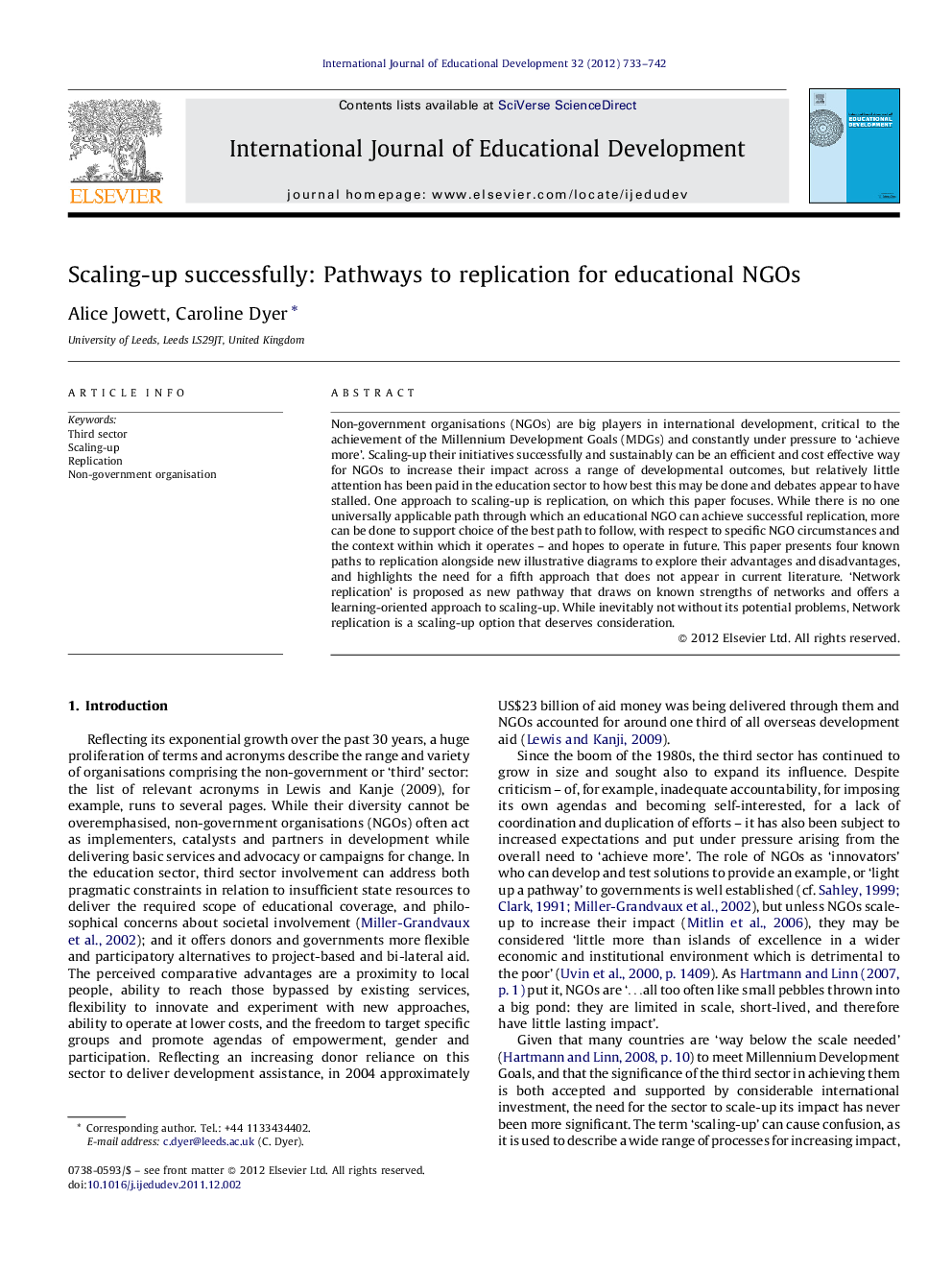| Article ID | Journal | Published Year | Pages | File Type |
|---|---|---|---|---|
| 356147 | International Journal of Educational Development | 2012 | 10 Pages |
Non-government organisations (NGOs) are big players in international development, critical to the achievement of the Millennium Development Goals (MDGs) and constantly under pressure to ‘achieve more’. Scaling-up their initiatives successfully and sustainably can be an efficient and cost effective way for NGOs to increase their impact across a range of developmental outcomes, but relatively little attention has been paid in the education sector to how best this may be done and debates appear to have stalled. One approach to scaling-up is replication, on which this paper focuses. While there is no one universally applicable path through which an educational NGO can achieve successful replication, more can be done to support choice of the best path to follow, with respect to specific NGO circumstances and the context within which it operates – and hopes to operate in future. This paper presents four known paths to replication alongside new illustrative diagrams to explore their advantages and disadvantages, and highlights the need for a fifth approach that does not appear in current literature. ‘Network replication’ is proposed as new pathway that draws on known strengths of networks and offers a learning-oriented approach to scaling-up. While inevitably not without its potential problems, Network replication is a scaling-up option that deserves consideration.
► How to scale up NGO initiatives successfully has attracted relatively little research attention in the education sector. ► Replication is a key approach to scaling-up and one of four known paths to increasing NGO impact. ► Illustrative diagrams of four paths to replication explore their advantages and disadvantages. ► A fifth pathway, ‘Network replication’, is proposed to address the gap in current thinking about scaling up.
